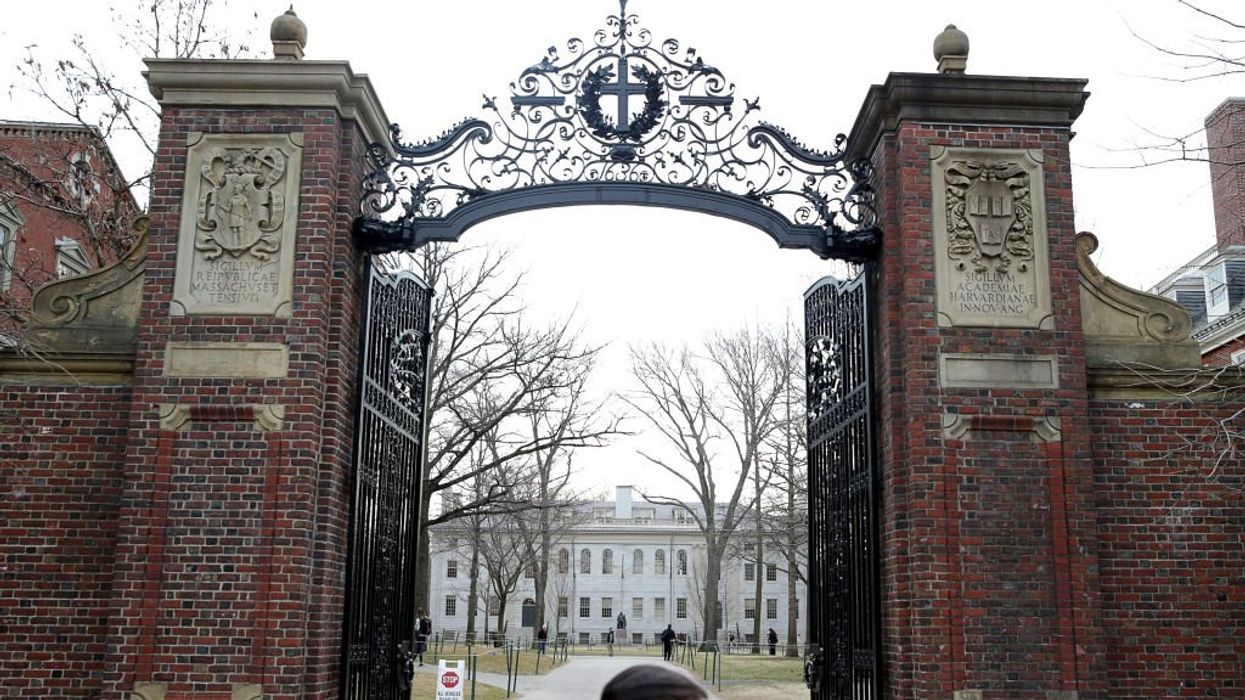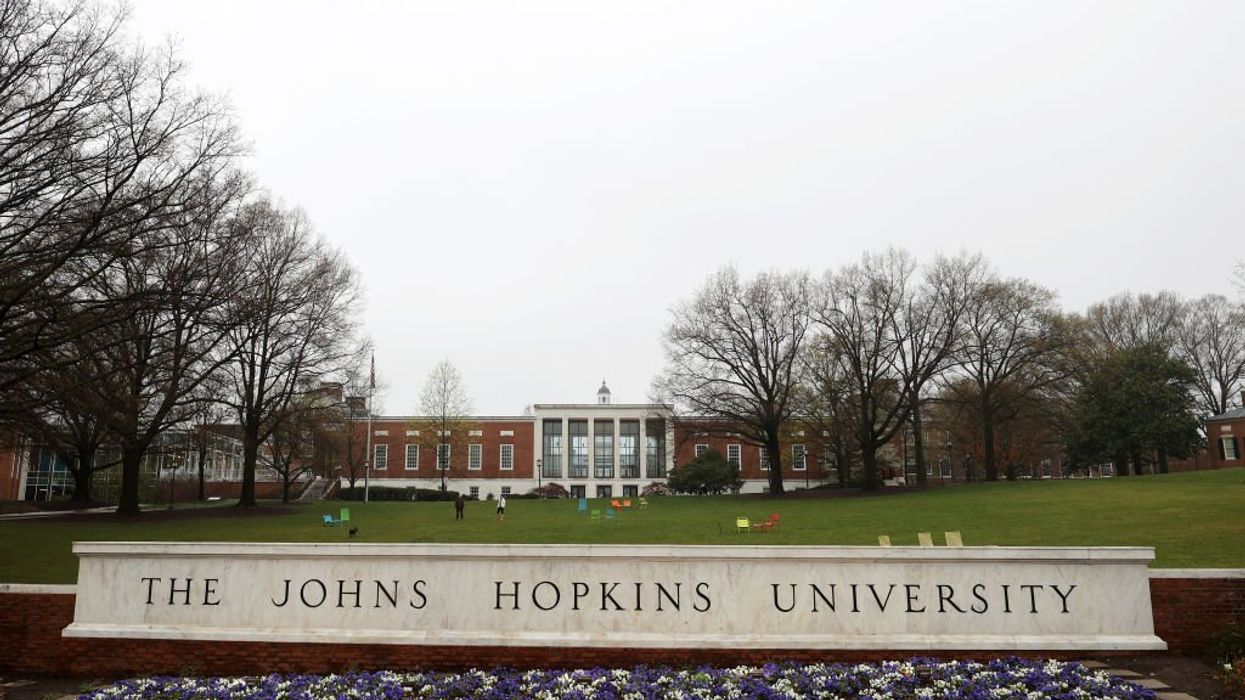Glenn spent an action-packed weekend in California, and he reflected on the experience on radio this morning. On Friday, Glenn addressed a crowd at David Horowitz’s West Coast Retreat in California over the weekend about the importance of culture and American history. On Saturday, Glenn had lunch with the Friends of Abe – a group of roughly 1,500 conservative-minded individuals in Hollywood who made headlines earlier this year when it was revealed they had been trying for 501(c)(3) tax-exempt status for nearly two years.
But perhaps the most surprising event on Glenn's itinerary was a private screening of the soon to be released motion picture Noah at Paramount Studios. On Friday, Glenn had some harsh words for the movie that has already been panned by critics for its “aggressive environmentalism” and failure to mention God.
Perhaps in an effort to change the buzz ahead of the film’s release this week, Paramount executives reached out to Glenn and asked if he would like to join them for a screening of the movie. Admitting he felt like a bit of a “dirtball: on Friday for basing his critique purely on someone else’s review, Glenn decided to take Paramount up on its offer.
But would the screening change his mind?
Not exactly.
On radio this morning, Glenn did explain why the movie is “awful” – not for the reasons The Hollywood Reporter review listed – but for “100 other reasons.”
PLUS:Photos from Glenn's tour of the Paramount Pictures studio backlot
Below is a partial transcript of Glenn's review:
I went to Los Angeles this weekend after we talked about the movie Noah on Friday and not such a nice way. The producer of the movie, or executive vice president of Paramount called and found out I was in Los Angeles and asked if I would actually see the movie and judge it on its merits. He said the reviewer we were basing our comments on was completely wrong, and he kindly invited us to come to the studios and watch the final print of the movie on Saturday. And we did, because I felt like kind of a dirtball, basing my review on something that I hadn't seen but on someone else's review. That's what people do to me. They don't listen or watch and then they review. It was wrong of me to do. I want to say this: Everybody at Paramount was unbelievably gracious. And I would love, as I said to him after the movie, I would love to be able to come and report that the movie is great, but I can't. It is awful, but it is not for the reasons that the reviewer said on Friday. It is awful for 100 other reasons.
Friday, we talked about the review. And in the review, it say it was a heavy-handed environmental movie and there was no mention of God… The review made it sound like this was a godless climate change movie. I believe that it is not a godless climate change movie. It's more like Sinbad the Sailor meets Shining and Friday the 13th, with a sprinkle of Mad Max Beyond Thunderdome.
And it plays as well as a movie that was just clipping all of that stuff together. Instead of referring to God as God, every reference in the movie is ‘the creator.’ That's fine, but they are definitely talking about God. Noah doesn't really seem to have a real good relationship with God. He sees some miracles, like oh, I don't know, his whole family being saved. In an amazing scene, he plants a seed and an entire forest grows in the desert, while he is standing there. Then he looks into the tent and he's like, ‘Kids, here's the one for the ark.’ Really, Mr. Noah? That's what you would say? You wouldn't even go behold the awesome power of God. You wouldn't go, ‘Whoa!’ That was weird… It's so ridiculous, the entire thing. But he is talking to God occasionally…
If you are looking for a biblical movie, this is definitely not it. Others on the team disagreed with this. This was split. Half the team said they couldn't take the environmentalism. I don't think it's an environmentalism thing as much as it's just pro-animal and antihuman. I mean strongly antihuman, but it's not the story of Noah that I was hoping for. If you are going for that, you will be horribly disappointed. If you are going for a campy, kind of bad, this is the movie to see. If you are looking for something good, you might not make it past the rock people because we nearly didn't.
Giant rock people appear at almost the beginning of the movie, kind of like the tree people in Lord of the Rings, except not as well done and of course made of rock. Not quite as talkative. I suppose they won't burn as easily as the tree people, but… don't bother checking on the scriptural reference to the rock people…
Have you ever wondered, ‘Hey, how did Noah clear the forest that just sprung up?’ Of course the rock people that God sent down as spirits. Then they were encased in lava, and then they got up, they're like, ‘Oh, we are watchers. We help Adam. We help you now too.’ You're like honestly? I felt really bad, because as the rock people story line continued, we all got giggling fits and we started to laugh and mock the movie. And at one point looked over and realized the executive vice president of Paramount, who invited us was standing this, observing how we were reacting to it. And I'm like, ‘I don't think we're going to get out of here without telling him exactly how we feel because I think he probably knows at this point.’ Literally laughing at the rock people.
That’s not the biggest problem with Noah. The biggest problem for me was Noah himself. Maybe it's just me. I'm a little different than some people. I always thought of Noah as more of a nice, gentle guy, prophet of God… I think of him more like that and less of the homicidal maniac that Paramount found in the Bible somehow or another… That is more of the Noah in the Babylonian Chainsaw Massacre – running around, not kidding, trying to kill his whole family… Really quite amazing.
Kathleen Parker in the Washington Post, she really liked the movie. She says:
I recently viewed the film and can confidently report the following: If you liked “Braveheart,” “Gladiator,” “Star Wars,” “The Lord of the Rings,” “Indiana Jones” or “Titanic,” you will like “Noah.” If you liked two or more of the above, you will love “Noah.” Your enjoyment increases exponentially with each movie checked above, though I should warn that “Titanic” made the cut for only one reason, the major difference between it and “Noah” being obvious. “Noah” also includes the essential love story or two, without which no story floats.
Kathleen, could I tell you something, honey? I don't know what kind of medication you are on, but I loved all of those movies, and all of us hated Noah. We honestly had a conversation, ‘Is it too rude to get up and walk out now, because we've got other things to do. We can go collect rocks in the parking lot, where there's other things we could do?’
[…]
I don't care if you believe in the Noah story. I don't believe if you think it's an allegory, if you believe it's complete fiction, it is entirely up to you. I happen to believe the story of Noah's Ark is true. And after the invitation, we went and we really wanted to like it. We really did… I really want a good Noah movie.
Bill Maher is like, ‘You can't be satisfied.’ Rock people, Bill. Rock people. And people like Bill Maher will say, ‘Well, you believe in a sky God.’ I don't believe in rock people, okay? I have a hard time with that one. It's not just a biblically bad movie because it treats a prophet of God like a lunatic. There's no redeeming value in Noah, none. He hates people. I'm sorry. No prophet of God hates people. I never see him try to breach and say turn from your evil ways. Instead, he hides from people because he hates them so much.
He tries to kill his own family. To me, a prophet receives direct communication from God, and Noah is wrong about everything… In the end, the person who makes all the sense is Hermione from Harry Potter. I know she was always the smart one at Hogwarts; but in the ark, I would have liked the prophet of God Noah not to have to go to Hermione and say, ‘Really? We shouldn't kill the whole family?’ It's crazy. Crazy…
It's a $100 million disaster. That's what it is. They just don't know what to do… I wish I could have brought different news to you, but I can't. And I appreciate the people at Paramount understanding because I did talk to them after. It was a really uncomfortable 20 minutes afterwards. He was in there pitching. I wish I can, but I can't. And I'm sorry. Next time – please invite me again and hopefully it will be a good movie.
















